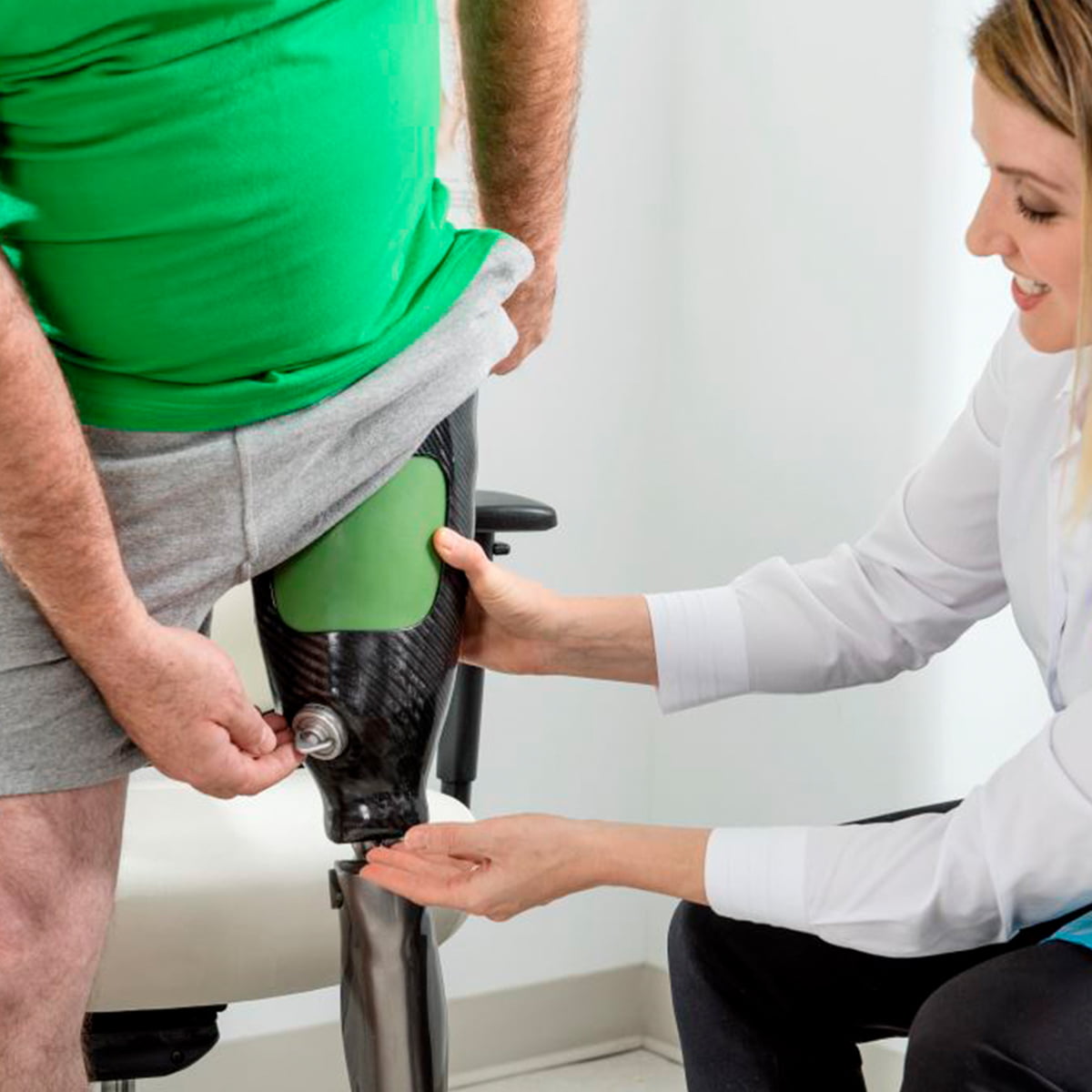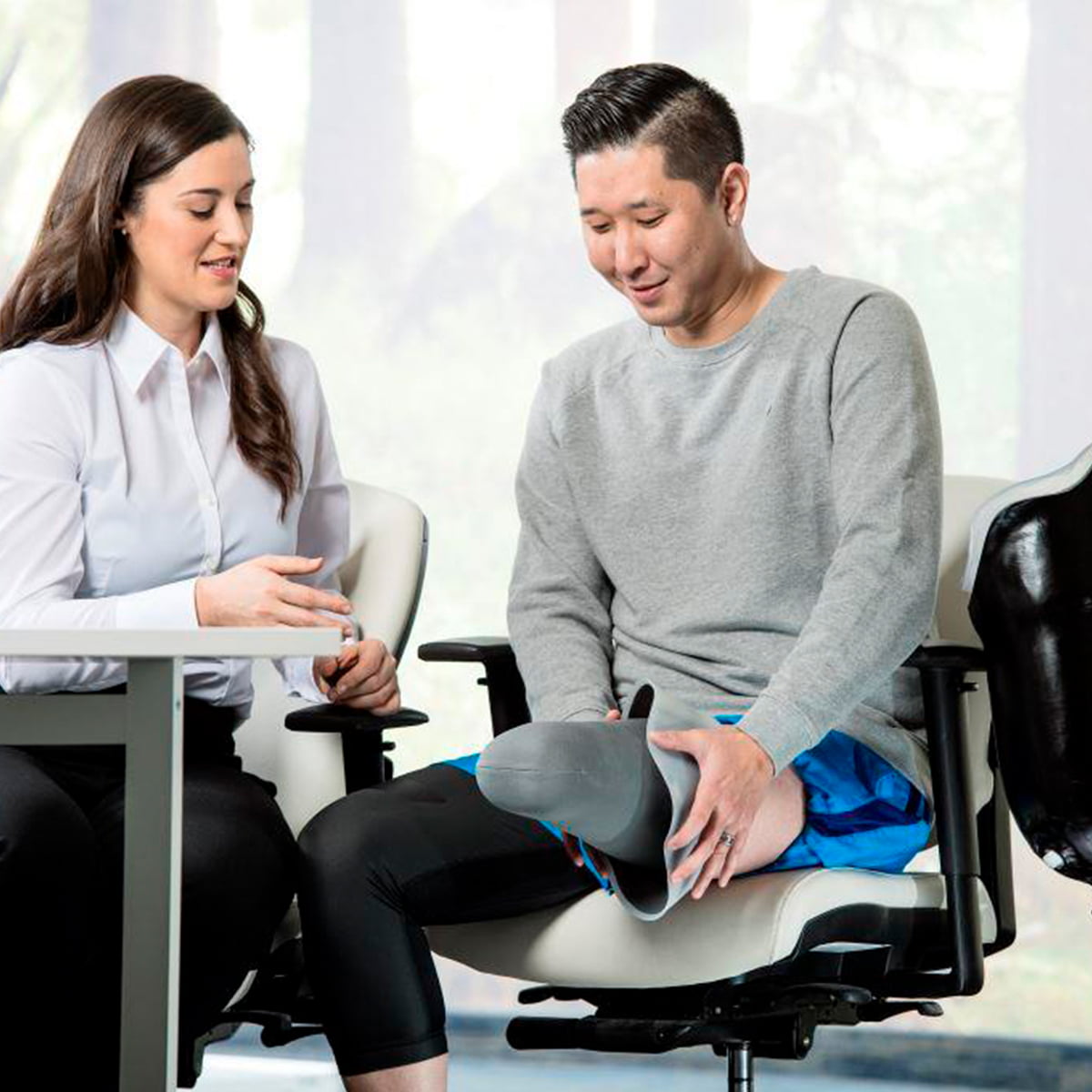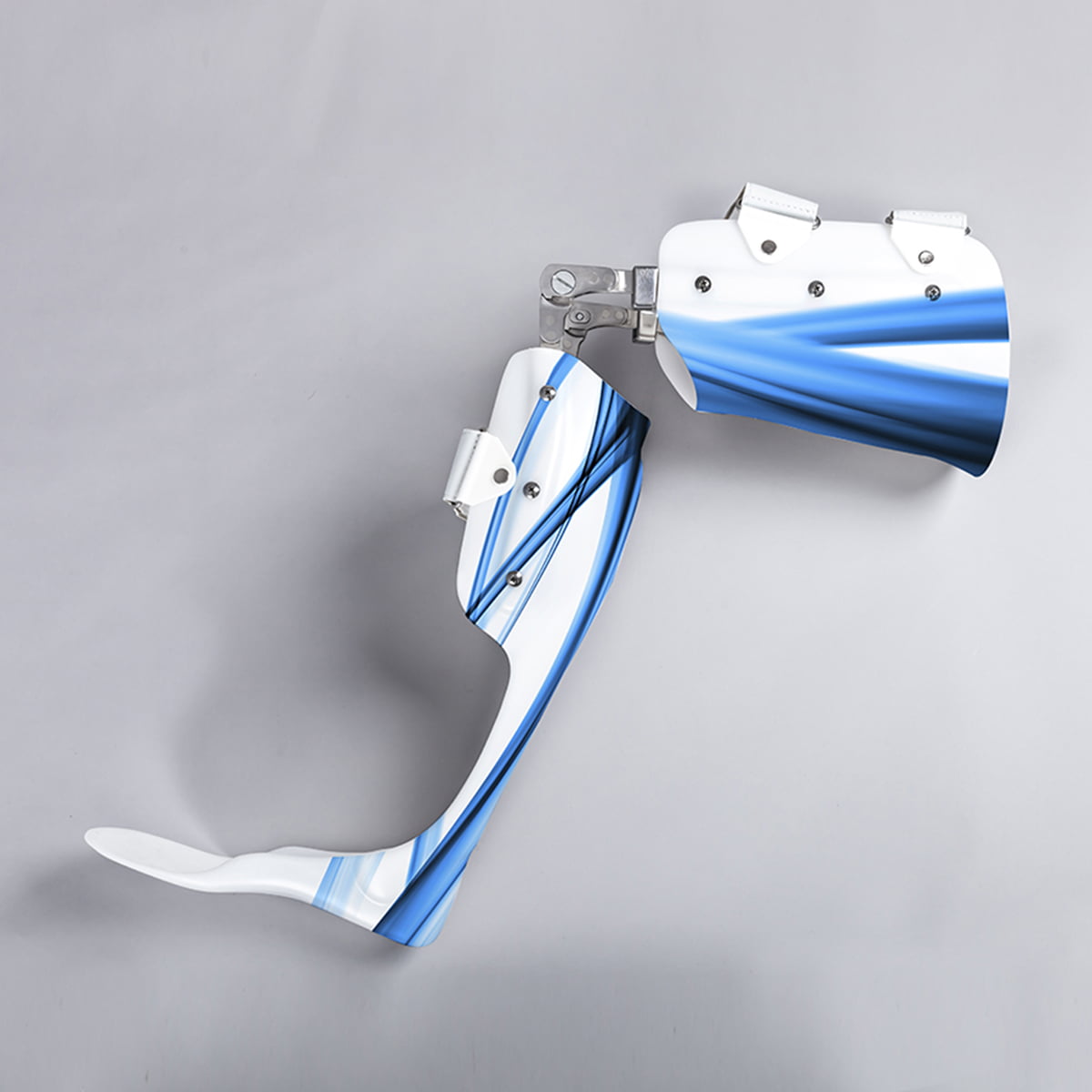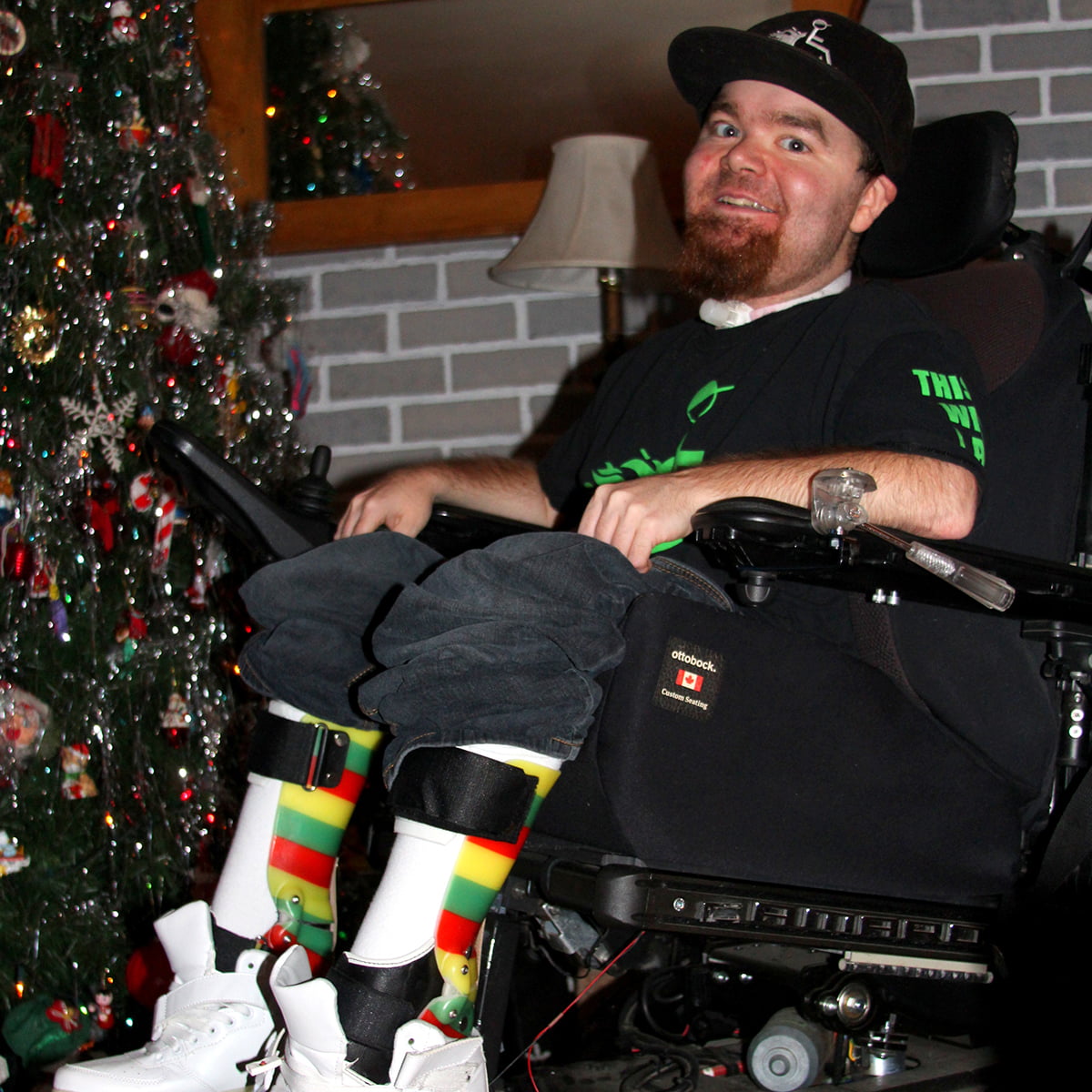ABOUT THE PROFESSION
Who We Are
Members of the Ontario Association of Prosthetics and Orthotics are certified or registered by the Canadian Board for Certification of Prosthetists and Orthotists. This board is registered under the national governing body, Orthotics Prosthetics Canada (OPC). Certified Orthotists and Prosthetists are the only health care professionals in Ontario that are recognised by the provincial funding agency called the Assistive Devices Program (ADP) to provide custom orthotic and prosthetic treatments to patients.
Certified Orthotists, CO(c)
A uniquely trained and certified health professional who provides comprehensive patient care for individuals requiring an orthosis. The Certified Orthotist evaluates patients with muscle/bone impairment, disease, or deformity, then designs and coordinates all aspects of the orthotic treatment. The goals of the orthotic treatment are to provide optimal care and independence, restore mobility and/or to prevent or limit disability. Certified Orthotists collaborate with various medical professionals, including physicians, surgeons, physiotherapists and occupational therapists. More Information
Certified Prosthetists, CP(c)
A uniquely trained and certified health professional who provides comprehensive patient care for individuals requiring a prosthesis. The Certified Prosthetist evaluates patients with a missing limb or limb segment to determine their individual prosthetic requirements, then designs and coordinates all aspects of the prosthetic treatment. The goals of the prosthetic treatment are to provide optimal care and independence, restoration of normal human form and/or improvement of function. Certified Prosthetists collaborate with a team of medical professionals that may include a physician, surgeon, physiotherapist and occupational therapist to ensure the comfort and mobility for each individual. More Information
Registered Orthotic/Prosthetic Technician, RTO(c), RTP(c), RTPO(c)
A specifically trained professional who manufactures orthoses/prostheses that have been designed by the Certified Orthotist and/or Prosthetist, to provide maximum anatomical congruency, function, and workmanship. They also provide technical expertise in the design, fabrication, maintenance and repair of orthoses/prostheses and their components. The Registration designation promotes the development of technical competence and provides recognition within the profession. More Information
Certified Prosthetist/Orthotist, CPO(c)
A uniquely trained and dual certified health professional who provides comprehensive patient care for individuals requiring either a prosthesis or an orthoses.
Standards
OAPO Members respect and adhere to standards that have been set nationally and internationally by the following organizations:
WHO Standards for Prosthetics and Orthotics Service Provision
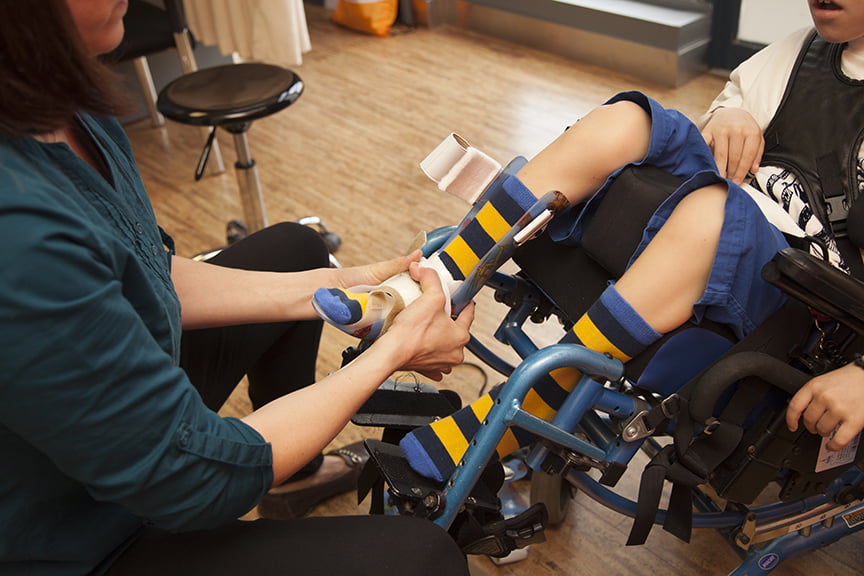
Education and Credentialing
Certified Orthotists and Certified Prosthetists entering the field today must have completed an undergraduate degree and have graduated from an Orthotics Prosthetics Canada (OPC) accredited Canadian Clinical Orthotic and Prosthetic School Program, before starting a supervised residency with a certified clinician. When the residency has been completed, each clinical candidate must pass a written exam and an Objective Structured Clinical Exam (OSCE) before being able to use the title Certified Orthotist CO(c), Certified Prosthetist CP(c) or Certified Prosthetist Orthotist CPO(c).
Many clinicians choose to complete a Master of Science (Rehabilitation) with an emphasis on prosthetics and orthotics. This course work is currently being administered by McMaster University.
Registered Technicians are required to have graduated from an accredited technical program and complete an internship, or have 6900 hours of supervised work experience. When the internship or work experience has been completed, each technical candidate must pass a written exam and an OSCE exam before being able to use the title Registered Orthotic Technician RTO(c), Registered Prosthetic Technician RTP(c) or Registered Prosthetic Orthotic Technician RTPO(c).
Certification and Registration is governed by the Canadian Board for Certification of Prosthetists and Orthotists (CBCPO) under Orthotics Prosthetics Canada (OPC). Certified and registered professionals are required to obtain a minimum number of continuing education credits on an ongoing basis, in order to maintain their professional status. More info is available here:
Prosthetic and Orthotic Treatments
Our certified professionals rise to the challenge of providing a treatment which suits an individual’s specific needs. This is achieved through blending scientific evidence, leading edge technology, clinical experience and creativity, to produce a unique design for each patient. Certified Prosthetists and Orthotists work closely with other healthcare providers to ensure that every patient receives optimal care.
The provision of care by Certified Prosthetists and Orthotists includes:
- Comprehensive Patient Assessment
- Standardized Tests and Analysis
- Observational or Quantitative Gait Analysis
- Outcome Measures
- Treatment Planning
- Shape capture of body segment or residual limb and rectification of positive mold
- Fabrication design and planning
- Treatment evaluation
- Maintenance of orthoses/prostheses
- Patient education regarding treatment expectations, care and maintenance, acclimatization and additional training
For a complete list of prosthetic and orthotic treatment procedures, please refer to the Compendium for Prosthetic and Orthotic Treatment
Funding of Orthotic and Prosthetic Treatments
The main source of funding for prosthetic and orthotic treatments in Ontario comes from the Assistive Devices Program (ADP). This program is funded through the Ontario Ministry of Health and Long Term Care. It is designed to provide basic treatments to all Ontarians who have a health card. Your Certified Orthotist or Certified Prosthetist will help you apply for this funding.
If a patient qualifies, other sources of funding include benefits through various social programs (Assistance for Children with Severe Disabilities, Ontario Disability Support Program, Ontario Works), Veterans Affairs Canada, Workplace Safety Insurance Board (WSIB), Non-Insured Health Benefits (NIHB), War Amps of Canada and private extended health insurance.

